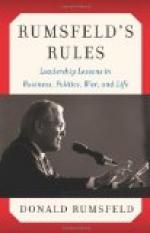The advance of Lord Methuen’s division renders imperative the protection of the long railway line from Cape Town to Orange River. This seems to be entrusted to General Forestier-Walker’s forces, reduced to two battalions, and to General Wauchope’s Highland brigade. One battalion only is with General Gatacre at Queenstown, and two battalions of General Lyttelton’s brigade which have reached Cape Town are as yet unaccounted for in the telegrams.
How, then, if all his forces are thus employed could Sir Redvers Buller, by taking thought, have added anything to Sir C.F. Clery’s force on the Mooi River? The answer is that a commander’s decision must usually be a choice of risks. To have sent on to Natal a part of the troops now in Cape Colony would have been to have increased the danger of the Cape Dutch going over to the Boers. Which was the less of two possible evils—the spread of disaffection in the Cape Colony or the loss of Sir George White’s force? No one at home can decide with confidence because the knowledge here available of the situation in either colony is very limited. Subject to this reserve, I should be disposed to think the danger in Natal the more serious, and the chance of losing Colonel Kekewich’s force a mere trifle in comparison with the defeat of General Joubert, for the effect of Joubert’s defeat would be felt on the Orange River, whereas the relief of Kimberley can hardly produce an appreciable effect on the situation in Natal.




